
Viktor Hramov, Éminence Grise of Turkmen Politics, Retires
22.09.2023
A mission from the World Health Organization (WHO) is to visit Turkmenistan this week to look into the COVID-19 situation. Turkmenistan is one of the few countries to have no officially recorded cases of infection with coronavirus.
The Turkmen authorities consistently state that they are following all the WHO recommendations on preventing infection with the coronavirus. They say they are closely monitoring the epidemiological situation and there are no cases of infection.
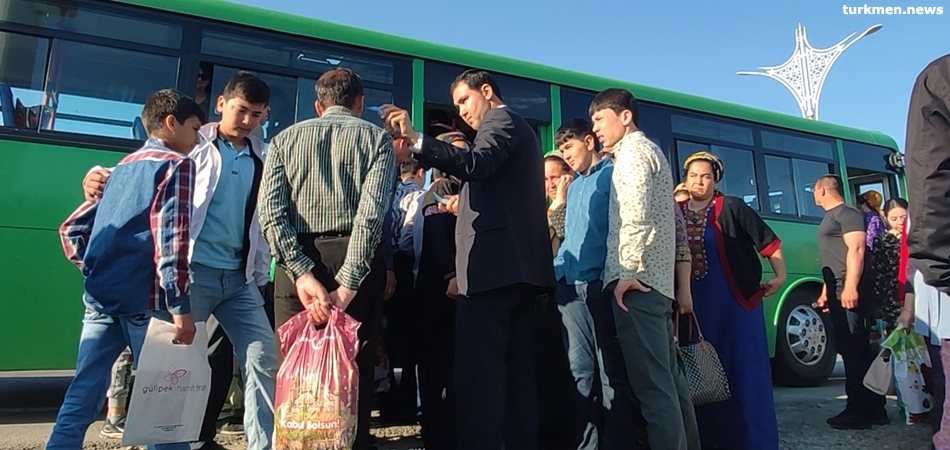
Since the virus started to spread across the world, turkmen.news, together with our colleagues from Radio Azatlyk and Chronicles of Turkmenistan, have been reporting on the country’s preventive measures. Like many countries Turkmenistan closed its borders, cancelled all international flights, created quarantine camps, and set up checkpoints on the roads into and out of major cities where all drivers and passengers have their temperature taken.
When buses reach the last stop on their route, they are wiped down with chlorine solution. Chlorine solution is also used to wash the wheels and lower bodywork of trucks entering Turkmenistan, at least from Kazakhstan. In all institutions, regardless of ownership, handrails, door handles, and banisters are wiped with chlorine solution. The premises of enterprises, organizations, and shopping centers are fumigated with harmala (Syrian rue), a plant used widely in traditional medicine.
Of course, the WHO does not require the burning of harmala; that’s Turkmen know-how, but even the WHO’s basic recommendations are either not followed in Turkmenistan or followed Turkmen-style.
This is one of the main WHO recommendations. People should not gather in groups and should maintain a distance of 1.5-2 meters from others. Well-attended public events, working meetings, and staff meetings are still being held in Turkmenistan, however. Every day hundreds of people crowd together outside state shops across the country, since there is a food shortage. There’s no social distancing whatsoever; people push and shove, some of them coughing and sneezing. Outside some shops the crowd is divided into men’s and women’s lines, but they still stand close together.

Turkmen.news reported previously about life in quarantine. People who have returned from abroad live in army tents for 14 or more days. Each tent has 20 bunk beds, which are not isolated from each other at all. New arrivals are mixed in with people who are about to go home. The chances of infection with the virus are greater in the camp than outside it. There’s a chance of catching other illnesses in the camp too, such as bowel or skin diseases, as the sanitary conditions and hygiene are inadequate. People go to the toilet in the sand, and soap and other disinfectants are not always available. It’s cold in the tents at night. According to sources, these are also the conditions in the Garabogaz camp on the border with Kazakhstan.
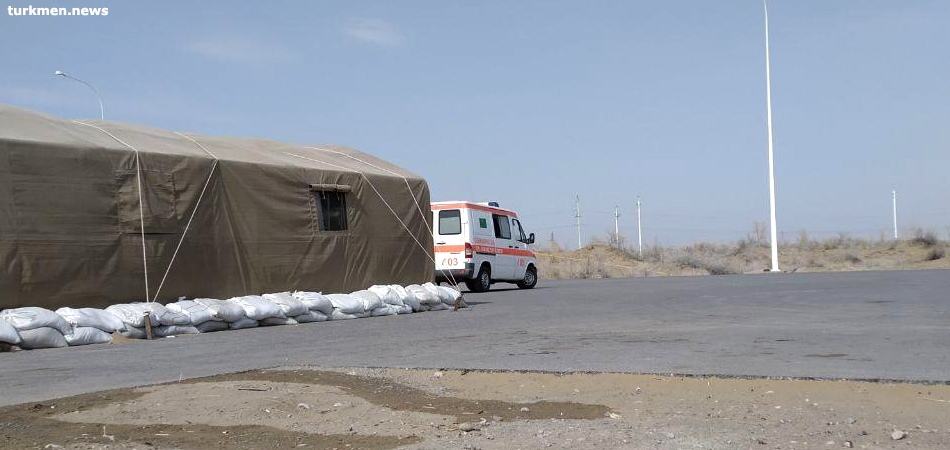
In the middle of March the authorities finally restricted internal movement in the country, setting up checkpoints on roads into and out of cities. Passengers have their temperature taken with an infrared thermometer, and people with higher temperatures are supposed to go to a tent erected not far away. However, the whole process is half-hearted, as a turkmen.news correspondent saw for himself.
At the entry point into Ashgabat passengers pile off the bus together, and a man in a black suit with a thermometer in each hand takes their temperatures. There is no orderly line and no social distancing at all. The tester places the infrared thermometer in people’s ears, though it should be placed on their foreheads. The tester wears neither a mask nor gloves, and no record is kept of who has had their temperature taken. Our correspondent didn’t have his temperature taken at all, as after a short time all the passengers piled back onto the bus. This is clearly not part of the WHO recommendations.

Representatives of international organizations and foreign diplomats have conducted various inspections in the country, visiting correctional facilities and never finding anything untoward. The Turkmen authorities prepare for each visit very thoroughly; just remember the diplomats’ visit to the Tejen colony, when some of the prisoners were hidden, others were made to play chess and read books, and all were warned to give just one answer to any attempts by the visitors to engage them in conversation: “We don’t understand Russian.”
So it is not worth counting on the WHO representatives to question the Turkmenistan health care system, or, God forbid, to find COVID-19 in the country.
The UN resident coordinator in Turkmenistan, Elena Panova, said in a recent BBC interview: “We are relying on official information because this is what all countries are doing. There is no question of trust because that’s the way it works.” There are no political prisoners in Turkmenistan, there’s no torture, no HIV and AIDS. And when the WHO mission arrives in Ashgabat, they will be taken where they can be taken, shown what they can be shown. There is no coronavirus in Turkmenistan, nor will there be, even if it really is there, even if people start to die in large numbers from associated diseases.

Upmarket Bar in Ashgabat Closed After Brawls Involving President’s Cousins
08.04.2024

Petrofac Back in Favour in Turkmenistan After Falling Foul of Berdimuhamedov
18.03.2024
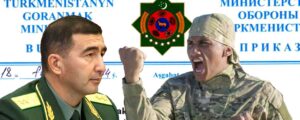
Turkmenistan’s Defense Minister Deprived Officers From Housing Entitlement Despite Widespread Resignations
28.02.2024
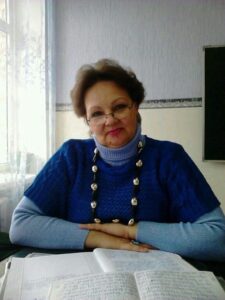
Murder and Suicide at Troubled Turkmen School
28.02.2024
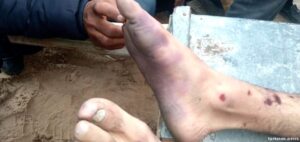
Turkmen Prosecutor’s Office Claims Baloch Detainee’s Fatal Wounds Were Self-Inflicted
01.02.2024
Tell us!
Add comment
your e-mail will not be published